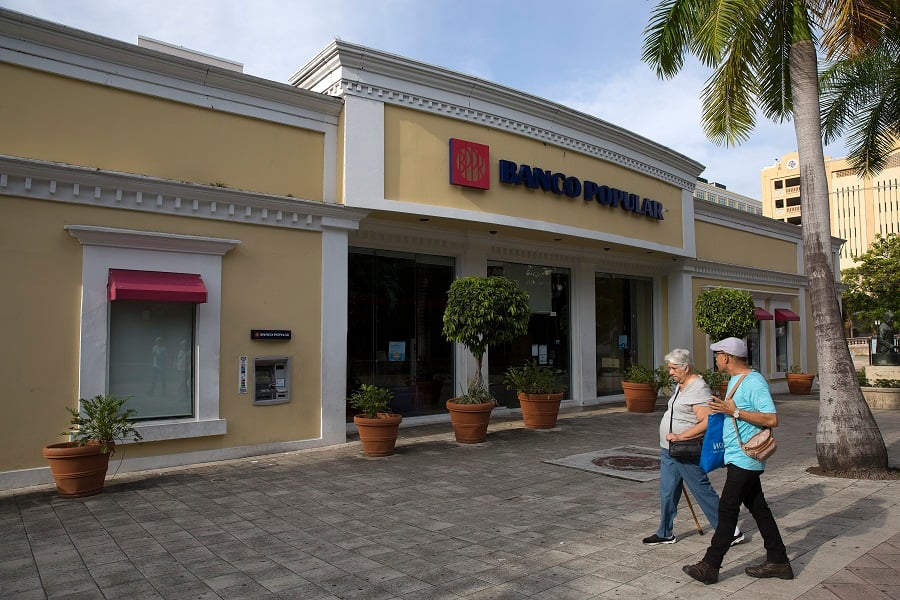If your clients are invested in a U.S. municipal bond mutual fund, odds are they're exposed to Puerto Rico's crumbling financial situation.
But because the slow-motion train wreck has been chugging along for several years, with the U.S. commonwealth's government publicly stating its intention to not pay its bond debt, the weekend's news that Puerto Rico
slipped into default status wasn't a surprise.
Even though about
half of all U.S. muni bond mutual funds are exposed to Puerto Rican debt, market watchers and analysts are embracing a sense of relative calm as the story continues to unfold.
“Whether or not they're in default today, they've telegraphed and publicly stated that they intend to default,” said Scott Colyer, chief executive of Advisors Asset Management.
As a U.S. commonwealth, unlike a state or other municipality, Puerto Rico doesn't have legal authority to file for bankruptcy protection the way Detroit did a few years ago.
“Legally, they can't just give up and say they can't make debt payments,” Mr. Colyer explained. “And there are several ways this could go, but I also think there are probably some investment opportunities.”
He described general obligation bonds and bonds tied to sales and use tax revenue as “probably money good.”
Puerto Rico's government passed its own law last year that enabled it to enter Chapter 9 bankruptcy protection, but the Supreme Court overruled it as unconstitutional.
CAN'T PAY ITS DEBT
The commonwealth made it clear in
late June that it cannot pay its $72 billion in debt, and that it will not pay a scheduled $58 million Aug. 1 payment to holders of Public Finance Corp. bonds.
Even with the uncertainty about whether or not Congress will ultimately allow Puerto Rico to enter bankruptcy protection, more sophisticated investors are recognizing pockets of opportunity among the more than 15 agencies issuing Puerto Rican sovereign debt.
That likely explains why so many mutual funds are still comfortable holding Puerto Rican bonds.
Morningstar Inc. counts more than 300 mutual funds, or 52% of all muni bond funds, with some exposure to Puerto Rican debt.
OppenheimerFunds holds 18 of the top 25 spots, in terms of funds holding Puerto Rican debt.
A company spokesman said OppenheimerFunds is not commenting until after the latest debt payment issue is resolved, but the company has issued several statements over the past few weeks.
1
FPRTX
Franklin Double Tax-Free Income A
41.15%
2
ORMDX
Oppenheimer Rochester MD Municipal A
36.76%
3
ORVAX
Oppenheimer Rochester VA Municipal A
34.89%
4
RMUNX
Oppenheimer Rochester Fund Municipals A
23.22%
5
LTNYX
Oppenheimer Rochester LtdTerm NY Munis A
21.14%
6
OPITX
Oppenheimer Rochester Ltd Term Muni A
20.16%
7
ORAZX
Oppenheimer Rochester AZ Municipal A
20.03%
8
ORMIX
Oppenheimer Rochester Michigan Muni A
19.98%
9
OPNCX
Oppenheimer Rochester NC Municipal A
18.91%
10
ONJAX
Oppenheimer Rochester NJ Municipal A
18.51%
Source: Morningstar
The most recent of which, on July 19, read: “We have been managing investments in Puerto Rico for more than 20 years, and remain steadfast in serving the long-term interests of our shareholders.”
Adam Buchanan, senior vice president at the broker-dealer Ziegler and Co., points out that in the context of Puerto Rico's openness about not intending to pay its debt, any investments in that market are likely betting that existing laws override political will.
“Muni bond funds have been pretty vocal about the difference between Puerto Rico's resources to pay and its willingness to pay,” he said.
As Puerto Rico digs in, Mr. Buchanan said part of the strategy is to follow the model employed by Detroit.
BUDGETS TO PUBLIC SAFETY
“We're starting to see a lot of talk out of Puerto Rico about shared pain, beyond just the citizens to include the bond holders, which is similar to what people heard in Detroit,” he said. “When the conversation changes from budgets to public safety issues, that's negative for bond holders, because the politicians will always take public safety over bond holders.”
So far, Puerto Rico can't legally enter bankruptcy protection, but the risk is that Congress will step in to make that possible, said Ronald Bernardi, a muni bond trader and president of Bernardi Securities.
“Puerto Rico has clearly already been carved out from the overall muni market, because it is not lost on the market how the courts treated bond holders in places like Detroit, Stockton, Calif., and San Bernardino,” he said. “There may be a ripple effect in the muni fund universe, but it will take some time play out. And the fact that they've defaulted doesn't mean your entire position will be automatically wiped out. You might get 90 cents on the dollar, or you might get 30 cents on the dollar.”







